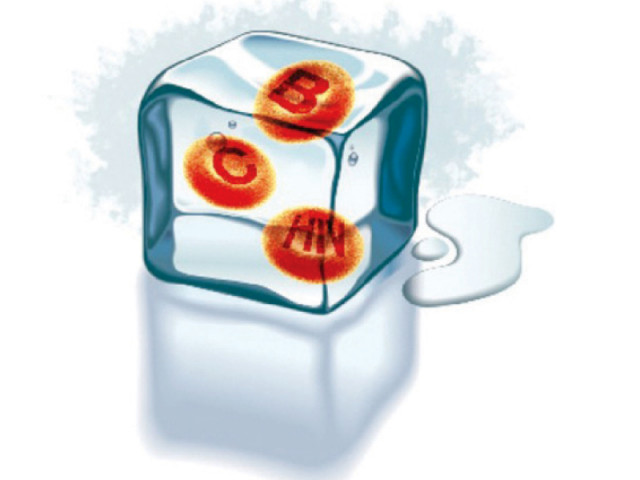Devolution woes: On World Hepatitis Day, no treatment available
Polyclinic stops hepatitis treatment for want of funds.

More than four years after the devolution of the federal health ministry under the 18th Amendment, the capital still lacks a plan to prevent and control hepatitis.
A National Health Services, Regulation and Coordination (NHSRC) Ministry official told The Express Tribune that no work is currently being done at the federal level for the prevention of hepatitis.
The official, who asked not to be named, said that after the devolution of the health ministry in 2010, the federal government has not devised any alternative programme to address the infectious disease.
“Government officials have been promising to eradicate the disease, but nothing has been done on the ground so far.”
The government did not organise any events tied to World Hepatitis Day, which fell a day before Eidul Fitr. “It shows the government’s commitment to curb the disease,” he said.
No hepatitis treatment at Polyclinic
Polyclinic has not been registering hepatitis patients for want of funds to procure interferon injections.
“For a year now, I have unsuccessfully been trying to get myself registered at Polyclinic to receive free treatment,” said Shahid Hussain, a hepatitis C patient.
Hussain, who had come from Bhara Kahu, is a daily-wage labourer. Five years ago, his wife was also diagnosed with hepatitis C and was treated at Polyclinic. “I cannot afford a private hospital. I hardly earn Rs10,000 a month,” he said.
Polyclinic spokesperson Dr Tanveer Malik said the hospital is not registering new patients because of unavailability of Interferon injections. “They are very costly and the hospital does not have funds to procure more,” he said.
Pakistan Institute of Medical Sciences (Pims), however, has resumed hepatitis treatment.
“We have resumed registering hepatitis patients with our own resources,” said Shaheed Zulfiqar Ali Bhutto Medical University Vice-Chancellor Dr Javed Akram.
He said a large number of patients suffered when the Pims stopped admitting new patients because it was short of interferon.
“Around 1,000 hepatitis patients come to the Pims outpatient departments (OPD) every day,” he said.
Professor Akram said the hospital will soon be providing polymerase chain reaction (PCR) testing for hepatitis patients.
Published in The Express Tribune, July 29th, 2014.


















COMMENTS
Comments are moderated and generally will be posted if they are on-topic and not abusive.
For more information, please see our Comments FAQ